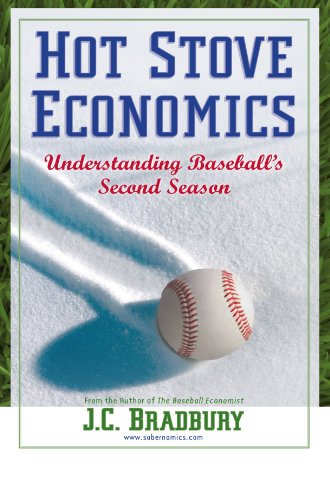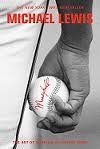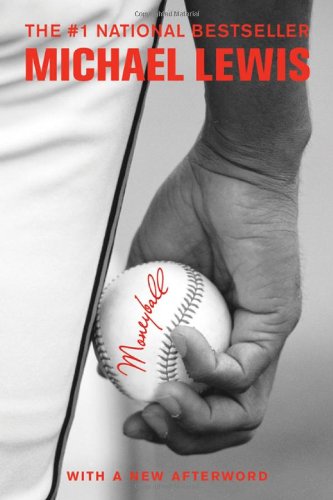Moneyball: The Art of Winning an Unfair Game Review
Sunday, January 30, 2011
Saturday, January 29, 2011
The Art of the Start: The Time-Tested, Battle-Hardened Guide for Anyone Starting Anything
The Art of the Start: The Time-Tested, Battle-Hardened Guide for Anyone Starting Anything Review
The Art of the Start: The Time-Tested, Battle-Hardened Guide for Anyone Starting Anything Feature
What does it take to turn ideas into action? What are the elements of a perfect pitch? How do you win the war for talent? How do you establish a brand without bucks? These are some of the issues everyone faces when starting or revitalizing any undertaking, and Guy Kawasaki, former marketing maven of Apple Computer, provides the answers.
The Art of the Start will give you the essential steps to launch great products, services, and companies—whether you are dreaming of starting the next Microsoft or a not-for-profit that’s going to change the world. It also shows managers how to unleash entrepreneurial thinking at established companies, helping them foster the pluck and creativity that their businesses need to stay ahead of the pack. Kawasaki provides readers with GIST—Great Ideas for Starting Things—including his field-tested insider’s techniques for bootstrapping, branding, networking, recruiting, pitching, rainmaking, and, most important in this fickle consumer climate, building buzz.
At Apple, Kawasaki helped turn ordinary customers into fanatics. As founder and CEO of Garage Technology Ventures, he has tested his iconoclastic ideas on real- world start- ups. And as an irrepressible columnist for Forbes, he has honed his best thinking about The Art of the Start.

Rerate Products

Customer Review
Friday, January 28, 2011
Hot Stove Economics: Understanding Baseball's Second Season
Hot Stove Economics: Understanding Baseball's Second Season Review
Hot Stove Economics: Understanding Baseball's Second Season Feature
The final out of the World Series marks the beginning of baseball's second season, when teams court free agents and orchestrate trades with the hope of building a championship contender. The real and anticipated transactions generate excitement among fans who discuss the merit of moves in the arena informally known as the “hot stove league.” In Hot Stove Economics, economist J.C. Bradbury answers the hot stove league's most important question: what are baseball players worth? With in-depth analysis, Bradbury identifies the game’s best and worst contracts—revealing the bargains, duds, and players who are worth every penny they receive. From minor-league prospects to major-league MVPs, Bradbury examines how factors such as revenue growth, labor rules, and aging— even down to the month in which players are born—shape players' worth and evaluates how well franchises manage their rosters. He broadly applies the principles of economics to baseball in a way that is both interesting and understandable to sports fanatics, team managers, armchair economists and students alike.

Rerate Products

Customer Review
Thursday, January 27, 2011
The Baseball Fan's Bucket List: 162 Things You Must Do, See, Get, and Experience Before You Die
The Baseball Fan's Bucket List: 162 Things You Must Do, See, Get, and Experience Before You Die Review
The Baseball Fan's Bucket List: 162 Things You Must Do, See, Get, and Experience Before You Die Feature
No sports fans are more in touch with the history and ephemera of their game than baseball fans. Hitting the sweet spot of our national pastime, The Baseball Fans Bucket List presents a list of 162 absolute must things to do, see, get, and experience before you kick the bucket. Entries range from visiting Elysian Fields in Hoboken, NJ (site of the first pro baseball game), to starting a baseball card collection; experiencing Opening Day; attending your favorite teams Fantasy Camp; reading classic books like Ball Four, and much more! Each entry includes interesting facts, entertaining trivia, and practical information about the activity, item, or travel destination. Also included is a complete checklist so the reader can keep a running tally of their Bucket-List achievements. With todays tabloid stories of steroid abuse and off-the-field shenanigans encroaching on baseballs idyllic charm, this unique guidebook encourages readers to celebrate all thats good about being a fan.

Rerate Products

Customer Review
Wednesday, January 26, 2011
Moneyball: The Art of Winning an Unfair Game
Moneyball: The Art of Winning an Unfair Game Review
Moneyball: The Art of Winning an Unfair Game Feature

Rerate Products

Customer Review
Tuesday, January 25, 2011
Sunday, January 23, 2011
Moneyball: The Art of Winning an Unfair Game
Moneyball: The Art of Winning an Unfair Game Review
Moneyball: The Art of Winning an Unfair Game Feature
Moneyball is a quest for the secret of success in baseball. Following the low-budget Oakland Athletics, their larger-than-life general manger, Billy Beane, and the strange brotherhood of amateur baseball enthusiasts, Michael Lewis has written not only "the single most influential baseball book ever" (Rob Neyer, Slate) but also what "may be the best book ever written on business" (Weekly Standard).
With these words Michael Lewis launches us into the funniest, smartest, and most contrarian book since, well, since Liar's Poker. Moneyball is a quest for something as elusive as the Holy Grail, something that money apparently can't buy: the secret of success in baseball. The logical places to look would be the front offices of major league teams, and the dugouts, perhaps even in the minds of the players themselves. Lewis mines all these possibilities—his intimate and original portraits of big league ballplayers are alone worth the price of admission—but the real jackpot is a cache of numbers—numbers!—collected over the years by a strange brotherhood of amateur baseball enthusiasts: software engineers, statisticians, Wall Street analysts, lawyers and physics professors.
What these geek numbers show—no, prove—is that the traditional yardsticks of success for players and teams are fatally flawed. Even the box score misleads us by ignoring the crucial importance of the humble base-on-balls. This information has been around for years, and nobody inside Major League Baseball paid it any mind. And then came Billy Beane, General Manager of the Oakland Athletics.
Billy paid attention to those numbers —with the second lowest payroll in baseball at his disposal he had to—and this book records his astonishing experiment in finding and fielding a team that nobody else wanted. Moneyball is a roller coaster ride: before the 2002 season opens, Oakland must relinquish its three most prominent (and expensive) players, is written off by just about everyone, and then comes roaring back to challenge the American League record for consecutive wins.
In a narrative full of fabulous characters and brilliant excursions into the unexpected, Michael Lewis shows us how and why the new baseball knowledge works. He also sets up a sly and hilarious morality tale: Big Money, like Goliath, is always supposed to win...how can we not cheer for David?
"One of the best baseball—and management—books out....Deserves a place in the Baseball Hall of Fame."—Forbes







